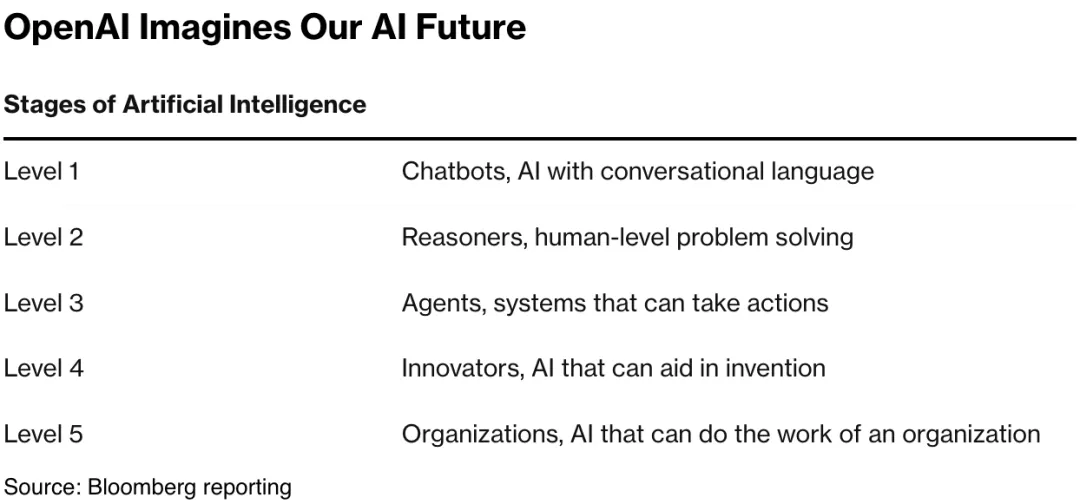
Source: https://x.com/howie_serious/status/1932656542995841195
title:the gentle singularity author:sam altman date:2025-06-10
We are past the event horizon; the takeoff has started. Humanity is close to building digital superintelligence, and at least so far it’s much less weird than it seems like it should be.
我們已經越過了”事件視界”,起飛已經開始。人類正接近構建 數字超級智能(super AGI),而且至少目前為止,這一切遠沒有想象中那麼奇異。
事件視界(event horizon):物理術語。在廣義相對論里,黑洞的”事件視界”是把時空切成兩部分的那條無形邊界:一旦任何粒子或信息跨過這條線,就再也無法返回,不論你多強大、速度多快,連光都逃不出來。
Robots are not yet walking the streets, nor are most of us talking to AI all day. People still die of disease, we still can’t easily go to space, and there is a lot about the universe we don’t understand.
機器人還沒上街,大多數人也沒整天和AI說話。人類仍然會死於疾病,我們依然無法輕易進入太空。對於宇宙,我們仍然有很多不瞭解的地方。
And yet, we have recently built systems that are smarter than people in many ways, and are able to significantly amplify the output of people using them. The least-likely part of the work is behind us; the scientific insights that got us to systems like GPT-4 and o3 were hard-won, but will take us very far.
儘管如此,我們最近已經構建出在許多方面都比人類更聰明的系統,並且能夠大幅提升人們使用它們所取得的成果。工作中原本最不可能實現的部分現已成為過去;讓我們開發出GPT-4和o3這類系統的科學洞見來之不易,但這些洞見將指引我們走向遠方。
AI will contribute to the world in many ways, but the gains to quality of life from AI driving faster scientific progress and increased productivity will be enormous; the future can be vastly better than the present. Scientific progress is the biggest driver of overall progress; it’s hugely exciting to think about how much more we could have.
AI將在諸多方面為世界作出貢獻,但借助AI加速科學進步和提高生產力所帶來的生活質量提升將是巨大的;未來可能遠遠勝過現在。科學進步是整體進步最強大的推動力;一想到我們還能獲得多少新的成果,便令人無比振奮。
In some big sense, ChatGPT is already more powerful than any human who has ever lived. Hundreds of millions of people rely on it every day and for increasingly important tasks; a small new capability can create a hugely positive impact; a small misalignment multiplied by hundreds of millions of people can cause a great deal of negative impact.
從某種宏觀意義上說,ChatGPT已經比有史以來任何一個人都更強大。每天有數以億計的人依賴它,並將其用於越來越重要的任務;一個微小的新功能就能帶來巨大的積極影響;而一個小小的 錯誤對齊(misalignment)乘以數億人則可能造成巨大的負面影響。
錯誤對齊(misalignment): 術語。舉例:算法短視頻的本質,就是一個錯誤對齊的ai。這個ai的目的與你作為用戶的價值是不對齊的。
2025 has seen the arrival of agents that can do real cognitive work; writing computer code will never be the same. 2026 will likely see the arrival of systems that can figure out novel insights. 2027 may see the arrival of robots that can do tasks in the real world.
2025年已經出現了 能夠執行真正認知工作的智能體;編寫計算機代碼的方式將從此不再相同。2026年很可能會出現 能夠發現全新見解的系統。2027年或許會出現 能夠在現實世界中執行任務的機器人。

簡單來說:2025年,L3 AGI;2026年,L4 AGI;
A lot more people will be able to create software, and art. But the world wants a lot more of both, and experts will probably still be much better than novices, as long as they embrace the new tools. Generally speaking, the ability for one person to get much more done in 2030 than they could in 2020 will be a striking change, and one many people will figure out how to benefit from.
將有更多的人能夠創作軟件和藝術作品。但世界需要更多的軟件和藝術,並且 只要專家們擁抱這些新工具,他們很可能仍然比新手強得多。總體而言,一個人在2030年所能完成的工作將遠遠超過其在2020年所完成的,這是一個引人注目的變化,許多人將想辦法從中受益。
In the most important ways, the 2030s may not be wildly different. People will still love their families, express their creativity, play games, and swim in lakes.
在最重要的方面,2030年代可能並不會與現在有天差地別。人們仍然會愛著家人,發揮創造力,玩遊戲,在湖中游泳。
But in still-very-important-ways, the 2030s are likely going to be wildly different from any time that has come before. We do not know how far beyond human-level intelligence we can go, but we are about to find out.
但 在一些依然非常重要的方面,2030年代很可能會與以往任何時代截然不同。我們不知道在超越人類智能水平這件事上能走多遠,但我們即將找到答案。
In the 2030s, intelligence and energy—ideas, and the ability to make ideas happen—are going to become wildly abundant. These two have been the fundamental limiters on human progress for a long time; with abundant intelligence and energy (and good governance), we can theoretically have anything else.
到了2030年代,智能和能源——也就是創意,以及將創意付諸實踐的能力——將會變得異常富足。這兩者長期以來一直是限制人類進步的根本因素;而有了充裕的智能和能源(再加上良好的治理),理論上我們可以獲得其他一切。
Already we live with incredible digital intelligence, and after some initial shock, most of us are pretty used to it. Very quickly we go from being amazed that AI can generate a beautifully-written paragraph to wondering when it can generate a beautifully-written novel; or from being amazed that it can make life-saving medical diagnoses to wondering when it can develop the cures; or from being amazed it can create a small computer program to wondering when it can create an entire new company. This is how the singularity goes: wonders become routine, and then table stakes.
實際上,我們已經在與令人驚嘆的 數字智能共存。在經歷了最初的震撼之後,我們大多數人已經相當習慣於它了。我們很快從驚嘆AI能夠生成一段優美的文字,轉而想知道它何時能創作出一部優美的小說;或者從驚嘆它能夠作出拯救生命的醫療診斷,轉而想知道它何時能研發出治癒疾病的方法;再或者從驚嘆它能夠創建一個小型計算機程序,轉而想知道它何時能創造出一家全新的公司。這就是奇點發展的過程:奇跡變成日常,隨後成為”上桌的前提”。
table stakes: 撲克術語,指每位玩家在牌局開始前必須先放在桌面上的賭注。延伸為基本資格,入門的最低門檻。
We already hear from scientists that they are two or three times more productive than they were before AI. Advanced AI is interesting for many reasons, but perhaps nothing is quite as significant as the fact that we can use it to do faster AI research. We may be able to discover new computing substrates, better algorithms, and who knows what else. If we can do a decade’s worth of research in a year, or a month, then the rate of progress will obviously be quite different.
據科學家反映,他們的生產力相較於有AI之前提高了兩到三倍。高級AI之所以引人注目有很多原因,但也許最重要的是我們可以利用它更快速地開展AI研究。我們可能會發現新的計算載體、更好的算法,以及其他誰也無法預料的事物。如果我們能在一年甚至一個月內完成過去十年的研究,那麼進步的速度顯然將大不相同。
高級AI (advanced AI): 同ilya昨天說的”the best AIs”(最好的ai)。ai和人一樣是智能體,不可一概而論,而是要以智能水平進行區分。
From here on, the tools we have already built will help us find further scientific insights and aid us in creating better AI systems. Of course this isn’t the same thing as an AI system completely autonomously updating its own code, but nevertheless this is a larval version of recursive self-improvement.
從現在開始,我們已經構建的工具將幫助我們獲取更多科學洞見,並協助我們創造更好的AI系統。當然,這與AI系統完全自主更新自身代碼並不是一回事,但不管怎樣,這可以看作 遞歸式自我改進的雛形。
There are other self-reinforcing loops at play. The economic value creation has started a flywheel of compounding infrastructure buildout to run these increasingly-powerful AI systems. And robots that can build other robots (and in some sense, datacenters that can build other datacenters) aren’t that far off.
還有其他自我強化的閉環在發揮作用。經濟價值的創造已經啓動了基礎設施擴建的飛輪,用於運行這些日益強大的AI系統。而能夠製造其他機器人的機器人(以及從某種意義上說,能夠建造其他數據中心的數據中心)離實現也已經不遠了。
If we have to make the first million humanoid robots the old-fashioned way, but then they can operate the entire supply chain—digging and refining minerals, driving trucks, running factories, etc.—to build more robots, which can build more chip fabrication facilities, data centers, etc, then the rate of progress will obviously be quite different.
如果我們不得不用傳統方式製造首批一百萬個人形機器人,但之後它們可以操作整個供應鏈——挖掘和提煉礦物、駕駛卡車、運營工廠等等——來製造更多的機器人,而這些機器人又能夠建造更多芯片製造設施、數據中心等,那麼進步的速度顯然將大不相同。
As datacenter production gets automated, the cost of intelligence should eventually converge to near the cost of electricity. (People are often curious about how much energy a ChatGPT query uses; the average query uses about 0.34 watt-hours, about what an oven would use in a little over one second, or a high-efficiency lightbulb would use in a couple of minutes. It also uses about 0.000085 gallons of water; roughly one fifteenth of a teaspoon.)
隨著數據中心生產實現自動化,智能的成本最終應該會趨近於電力成本。(人們經常好奇一次ChatGPT查詢消耗多少能量;平均每次查詢約消耗0.34瓦時,大致相當於烤箱運行一秒多鐘或一個高效燈泡亮幾分鐘所用的能量。每次查詢還約耗水0.000085加侖,約等於十五分之一茶匙的水量。)
The rate of technological progress will keep accelerating, and it will continue to be the case that people are capable of adapting to almost anything. There will be very hard parts like whole classes of jobs going away, but on the other hand the world will be getting so much richer so quickly that we’ll be able to seriously entertain new policy ideas we never could before. We probably won’t adopt a new social contract all at once, but when we look back in a few decades, the gradual changes will have amounted to something big.
技術進步的速度將持續加快,而且人類仍然能夠適應幾乎任何事物。確實會有非常棘手的方面,比如整個職業類別的消失;但另一方面,世界將變得極其富裕且富裕得非常之快,我們將能夠認真考慮一些以往根本不可能的新政策理念。我們或許不會一下子就訂立全新的社會契約,但當我們在幾十年後回顧時,這些漸進的變化將累積成巨大的轉變。
基於我的理解,唯一的出路是UBI,集體發錢。讓所有人來快速學習,終身學習,適應並駕馭ai,似乎很難。不願意或不指望ubi的人,就得每天用ai,學習ai知識和工具。
If history is any guide, we will figure out new things to do and new things to want, and assimilate new tools quickly (job change after the industrial revolution is a good recent example). Expectations will go up, but capabilities will go up equally quickly, and we’ll all get better stuff. We will build ever-more-wonderful things for each other. People have a long-term important and curious advantage over AI: we are hard-wired to care about other people and what they think and do, and we don’t care very much about machines.
如果歷史可以作為借鑒,我們將會想出新的事情去做,也會產生新的渴望,並能迅速地吸納新工具(工業革命後的就業變遷就是一個很好的近期例子)。人們的期望會提高,但能力也會同樣快速地提升,我們都將獲得更好的東西。我們將為彼此創造出越來越多奇妙的事物。相較於AI,人類在長期方面擁有一個重要而有趣的優勢:我們的天性使我們在乎他人及其所思所為,而我們並不怎麼關心機器。
A subsistence farmer from a thousand years ago would look at what many of us do and say we have fake jobs, and think that we are just playing games to entertain ourselves since we have plenty of food and unimaginable luxuries. I hope we will look at the jobs a thousand years in the future and think they are very fake jobs, and I have no doubt they will feel incredibly important and satisfying to the people doing them.
一千年前的一位自給自足的農民,如果看到我們許多人如今所做的事情,可能會說我們的工作都是”假工作”,並覺得我們只是因為有充足的食物和難以想象的奢侈品而在玩遊戲自娛自樂。我希望當我們看到一千年後的那些工作時,也會覺得那些工作非常”虛假”;而我毫不懷疑,對於從事那些工作的人來說,那些工作將讓他們感到無比重要且令人滿足。
The rate of new wonders being achieved will be immense. It’s hard to even imagine today what we will have discovered by 2035; maybe we will go from solving high-energy physics one year to beginning space colonization the next year; or from a major materials science breakthrough one year to true high-bandwidth brain-computer interfaces the next year. Many people will choose to live their lives in much the same way, but at least some people will probably decide to “plug in”.
新奇跡誕生的速度將極為驚人。今天我們甚至難以想象到了2035年我們會發現些什麼;也許我們會在某一年解決高能物理難題,而下一年就開始太空殖民;或者某一年在材料科學上取得重大突破,而下一年就實現真正的高帶寬腦機接口。許多人將選擇幾乎以同樣的方式過他們的生活,但至少會有一部分人可能決定”接入”。
Looking forward, this sounds hard to wrap our heads around. But probably living through it will feel impressive but manageable. From a relativistic perspective, the singularity happens bit by bit, and the merge happens slowly. We are climbing the long arc of exponential technological progress; it always looks vertical looking forward and flat going backwards, but it’s one smooth curve. (Think back to 2020, and what it would have sounded like to have something close to AGI by 2025, versus what the last 5 years have actually been like.)
展望未來,這一切聽起來讓人難以完全理解。但真正經歷時,可能會讓人覺得驚嘆卻依然可控。從相對的角度來看,奇點是逐步到來的,融合也是緩慢發生的。我們正沿著技術指數級進步的長弧攀登;向前看,這條弧線總顯得陡直,向後看,它又彷彿平坦,但實際上它是一條平滑的曲線。(回想2020年,如果有人說到2025年我們將接近擁有AGI,那聽起來會有多誇張;再看看過去5年的實際經歷。)
There are serious challenges to confront along with the huge upsides. We do need to solve the safety issues, technically and societally, but then it’s critically important to widely distribute access to superintelligence given the economic implications. The best path forward might be something like:
巨大的潛在收益伴隨著嚴峻的挑戰。我們確實需要在技術和社會層面解決安全問題,但隨後,鑒於超級智能所帶來的經濟影響,將其訪問權限廣泛開放就變得至關重要。最好的前進路徑可能是:
- Solve the alignment problem, meaning that we can robustly guarantee that we get AI systems to learn and act towards what we collectively really want over the long-term (social media feeds are an example of misaligned AI; the algorithms that power those are incredible at getting you to keep scrolling and clearly understand your short-term preferences, but they do so by exploiting something in your brain that overrides your long-term preference).
解決對齊問題,也就是說我們能夠可靠地確保AI系統在長期內學習並朝著我們集體真正想要的方向行事。(社交媒體的信息流就是 “錯誤對齊AI”的一個例子;驅動這些信息流的算法極擅長誘使你不停地滾動瀏覽,並且清楚地瞭解你的短期偏好,但它們正是通過利用你大腦中的某些機制讓你的短期偏好凌駕於長期偏好之上來實現這一點的。) - Then focus on making superintelligence cheap, widely available, and not too concentrated with any person, company, or country. Society is resilient, creative, and adapts quickly. If we can harness the collective will and wisdom of people, then although we’ll make plenty of mistakes and some things will go really wrong, we will learn and adapt quickly and be able to use this technology to get maximum upside and minimal downside. Giving users a lot of freedom, within broad bounds society has to decide on, seems very important. The sooner the world can start a conversation about what these broad bounds are and how we define collective alignment, the better.
接下來要專注於讓超級智能變得廉價、廣泛可及,並且不至於過度集中於任何個人、公司或國家。社會具有韌性和創造力,並且適應能力很強。如果我們能夠凝聚全人類的意志和智慧,那麼儘管我們會犯很多錯誤,也會出現一些嚴重的問題,我們仍能快速地學習和適應,並利用這項技術使好處最大化、壞處最小化。在由社會決定的寬泛界限內給予用戶充分的自由,這一點顯得非常重要。全球越早開始討論這些界限是什麼,以及我們如何定義”集體對齊”,就越好。
We (the whole industry, not just OpenAI) are building a brain for the world. It will be extremely personalized and easy for everyone to use; we will be limited by good ideas. For a long time, technical people in the startup industry have made fun of “the idea guys”; people who had an idea and were looking for a team to build it. It now looks to me like they are about to have their day in the sun.
我們(整個行業,而不僅僅是 OpenAI)正在為這個世界打造一個”大腦”。這個”大腦”將是 高度個性化且每個人都能輕鬆使用的;我們未來 唯一的限制將是有沒有好的創意。長期以來,創業圈的技術人員一直嘲笑那些”點子傢伙”——那些只有一個主意就想找團隊來實現的人。而現在在我看來,屬於他們大顯身手的日子即將到來。
OpenAI is a lot of things now, but before anything else, we are a superintelligence research company. We have a lot of work in front of us, but most of the path in front of us is now lit, and the dark areas are receding fast. We feel extraordinarily grateful to get to do what we do.
OpenAI 目前涉足許多方面,但首先,我們是一家超級智能研究公司。我們面前還有大量工作要完成,但此刻我們前方的大部分道路都已經被照亮,黑暗未知的區域正在快速縮小。能夠從事我們所做的事情,我們感到無比感激。
Intelligence too cheap to meter is well within grasp. This may sound crazy to say, but if we told you back in 2020 we were going to be where we are today, it probably sounded more crazy than our current predictions about 2030.
智能廉價到無需計價已在掌握之中。這樣說或許聽起來很瘋狂,但如果我們在2020年就告訴你我們今天會達到現在的局面,當時聽起來可能會比我們目前對2030年的預測還要瘋狂。
這篇文章發佈的同時,openai把o3價格降低到比gpt-4o還便宜。頂級ai,底部價格。
May we scale smoothly, exponentially and uneventfully through superintelligence.
願我們能夠 以平穩、指數級且波瀾不驚的方式擴展到超級智能階段。
翻譯一下:祝願世界和平。奇點在快速到來,希望是一個”溫和的奇點”。
